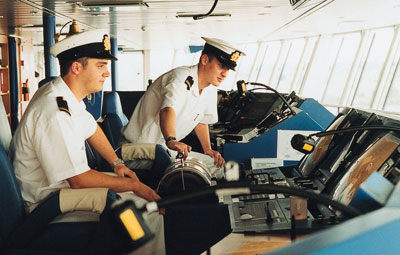Maritime Transport: More rights and protection at work for more than 1.2 million seafarers – a corner stone for maritime safety
20/08/2013

The European Commission welcomes the entry into force today of the International Maritime Labour Convention establishing the minimum working and living conditions for more than 1,2 million persons working at sea and ensuring fair competition for the maritime industry globally. Recognising the importance of this International Convention, the Union has adopted several legislative instruments to ensure the consistent and effective implementation by all its Member States.
Siim Kallas, Commission Vice-President responsible for transport said: "I am glad that this Convention will become a reality in the day-to-day activities of European seafarers given how difficult and demanding this profession can be. European seafarers are among the best trained professionals in the world and this Convention is crucial for the creation of a level playing field in maritime transport. It will bring standards up globally and should help to support the employment and training of EU seafarers. Therefore, it was important that the Union adopts a regulatory framework to ensure its proper implementation."
ILO Director-General Guy Ryder said: "This Convention shows how tripartite dialogue and international cooperation can operate constructively for the most globalized of industries by concretely addressing the challenges to securing decent working and living conditions for seafarers while simultaneously helping to ensure fair competition for shipowners. But of course our work is not done. I want to take this opportunity to call on all countries with a maritime interest that have not yet ratified the Convention to do so at their earliest convenience and I urge governments and shipowners to work effectively to implement this Convention."
The Maritime Labour Convention (MLC) adopted by the International Labour Organisation (ILO) in 2006, provides comprehensive rights and protection at work for more than 1.2 million seafarers worldwide. It creates a single instrument consolidating 36 ILO conventions and one protocol. This international legal instrument is key to the promotion of quality shipping, along with other Conventions adopted by the International Maritime Organisation relating to the safety, security and environmental protection in maritime transport.
At the same time, Directive 2009/13/EC implementing an agreement reached by the European social partners is also entering into force today. It is based on the MLC, but goes beyond, by including some more favourable conditions which are part of the EU acquis, such as provisions on annual holidays, health and safety conditions, delivery of medical certificates and the application of the MLC to ships of less than 200 Gross Tonnage.
Furthermore, in order to make sure that the Convention and the Directive are enforced throughout the EU, the Commission made two proposals in March 2012 through the EU flag States obligations and Port State Control.
The first proposal aimed to establish the mechanisms for the enforcement of the Agreement between the Social Partners. The second measure amending Directive 2009/16/EC on Port State Control will incorporate into the EU Port State Control regime the MLC labour documents and its complaint procedure.
The agreement between the European Parliament and the Council of Ministers on these two proposals has been found under the Irish Presidency in time to coincide with the entry into force of the Convention. With the social Agreement, the Directive enforcing the Agreement and the amending Directive to Port State Control, the EU will be the most advanced region in the World for ensuring enforcement of this very important Convention.
For more information:


